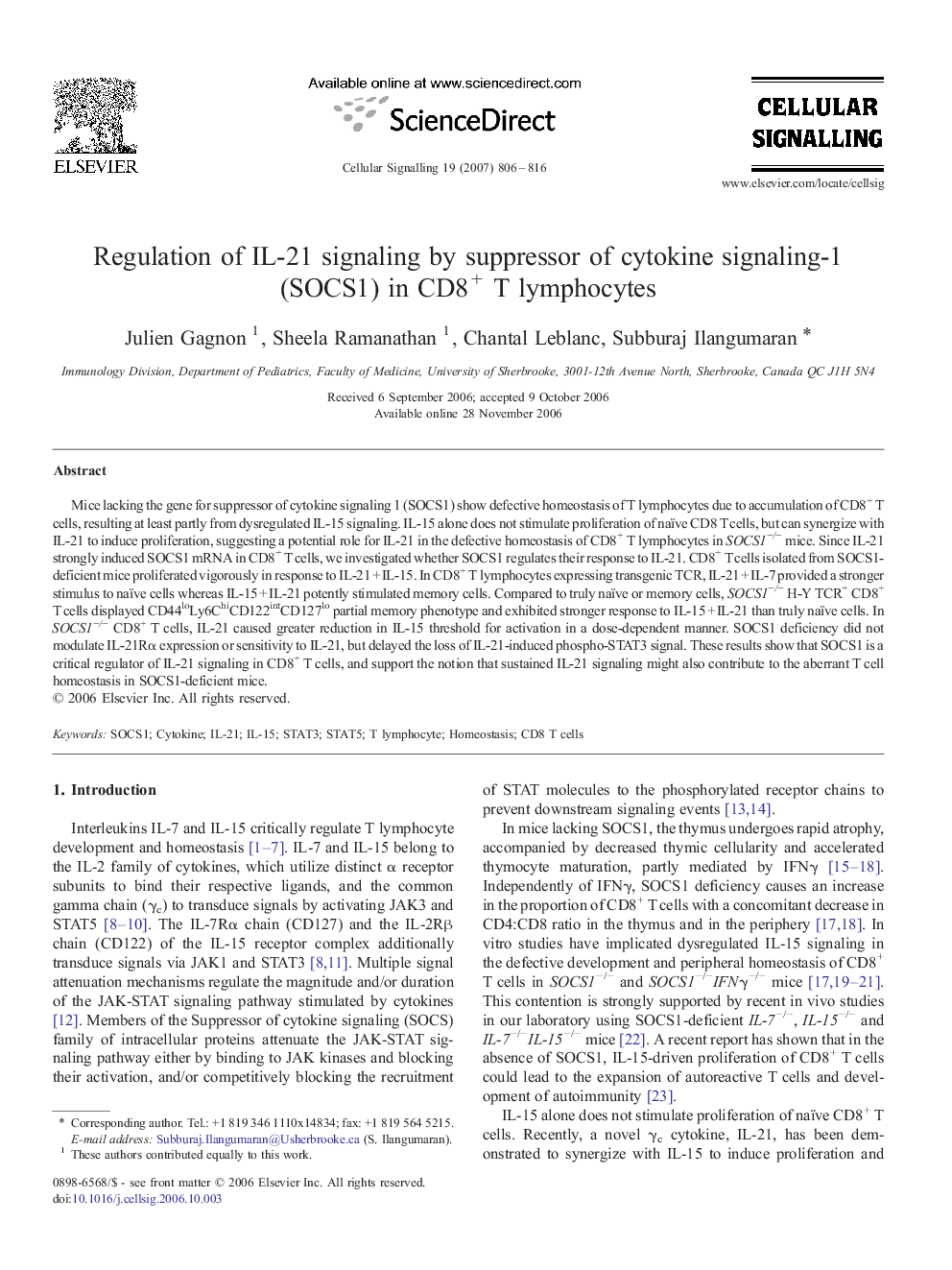| Article ID | Journal | Published Year | Pages | File Type |
|---|---|---|---|---|
| 1964639 | Cellular Signalling | 2007 | 11 Pages |
Mice lacking the gene for suppressor of cytokine signaling 1 (SOCS1) show defective homeostasis of T lymphocytes due to accumulation of CD8+ T cells, resulting at least partly from dysregulated IL-15 signaling. IL-15 alone does not stimulate proliferation of naïve CD8 T cells, but can synergize with IL-21 to induce proliferation, suggesting a potential role for IL-21 in the defective homeostasis of CD8+ T lymphocytes in SOCS1−/− mice. Since IL-21 strongly induced SOCS1 mRNA in CD8+ T cells, we investigated whether SOCS1 regulates their response to IL-21. CD8+ T cells isolated from SOCS1-deficient mice proliferated vigorously in response to IL-21 + IL-15. In CD8+ T lymphocytes expressing transgenic TCR, IL-21 + IL-7 provided a stronger stimulus to naïve cells whereas IL-15 + IL-21 potently stimulated memory cells. Compared to truly naïve or memory cells, SOCS1−/− H-Y TCR+ CD8+ T cells displayed CD44loLy6ChiCD122intCD127lo partial memory phenotype and exhibited stronger response to IL-15 + IL-21 than truly naïve cells. In SOCS1−/− CD8+ T cells, IL-21 caused greater reduction in IL-15 threshold for activation in a dose-dependent manner. SOCS1 deficiency did not modulate IL-21Rα expression or sensitivity to IL-21, but delayed the loss of IL-21-induced phospho-STAT3 signal. These results show that SOCS1 is a critical regulator of IL-21 signaling in CD8+ T cells, and support the notion that sustained IL-21 signaling might also contribute to the aberrant T cell homeostasis in SOCS1-deficient mice.
